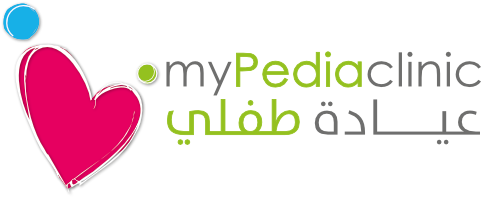Iron is an essential mineral that plays a critical role in the growth and development of children. It is necessary for the production of haemoglobin, a protein in red blood cells that carries oxygen from the lungs to the rest of the body. Iron also helps the immune system function properly, supports cognitive development, and is necessary for muscle function. In addition, iron helps prevent anaemia, a condition in which the body doesn’t have enough red blood cells, which can cause fatigue, weakness, and a decreased ability to concentrate.
Children need to get enough iron from their diet, especially during their early years when they are growing rapidly. If your child’s diet is deficient in iron, he or she may develop iron deficiency. Iron deficiency can lead to anaemia and tiredness, among other symptoms. Luckily, there are several things that parents can do to prevent their child from developing iron deficiency – and even if your child does develop anaemia later on in life, there are ways you can prevent it.
Serve your child with vitamin-rich foods
Eating a balanced and nutritious diet that includes a variety of vitamin-rich foods is important for children with iron deficiency. Vitamins and minerals, such as vitamin C and folic acid, work together with iron to ensure proper growth, development, and overall health. Vitamin C helps your child’s body absorb iron more efficiently, so it is important to include foods high in vitamin C in the diet, such as citrus fruits, strawberries, blackcurrants, broccoli, bell peppers, and leafy greens. Serve your child a colourful fruit bowl that they can’t resist. You can also hand your child a glass of orange juice or vegetable juice blends loaded with vitamin C.
Folic acid, found in foods like lentils, beans, brussels sprouts, and dark leafy greens, also helps the body produce new red blood cells, which can improve symptoms of anaemia. Try incorporating them into salads, smoothies, or as a side dish. Whole grains like whole wheat bread, brown rice, and quinoa are also good sources of folic acid which can be included as a staple in your child’s meal.
It is also important to work with the best nutritionist in Dubai to develop a balanced diet that meets the specific needs of your child, including the appropriate amount of iron and other essential nutrients. A healthy, balanced diet can help ensure that your child with iron deficiency gets the nutrients they need to thrive and reach their full potential.
Make sure children get enough iron in their diet
Meats such as beef, chicken, and turkey are excellent sources of iron. Encourage your child to choose lean cuts of meat and limit processed meats. Meats can be included in multiple recipes and your child will love them regardless. Beans and lentils are versatile and nutritious sources of iron which can be included in every meal. You can pack some dried fruits like raisins, apricots, and figs which are high in iron as a snack option for your kid instead of chips or other fast food. Nuts and seeds like almonds, cashews, and pumpkin seeds are also great sources of iron. You can blend them with your vitamin C smoothie or get creative by sprinkling them over your child’s oatmeal bowl.
Leafy greens such as spinach, kale, and collard greens are high in iron and also provide other essential nutrients like vitamins A and C. Though getting your child to eat leafy greens can sometimes be a challenge, with a little creativity, it can be made into an enjoyable experience. You can toss leafy greens with a flavorful dressing or use the leaves as a wrap for sandwiches or tacos.
Ensure that your child gets plenty of fluids every day
Drinking water helps the body absorb iron better than other types of food or beverages do; therefore, parents must encourage their children to drink plenty throughout the day so they don’t miss out on vital nutrients needed during growth spurts! Iron absorption can be hampered by antinutrients. As a result, you should keep your child away from consuming antinutrients like tea, coffee, and dairy products.
To help ensure that your children get enough fluids throughout their day:
- Place a glass next to their bed so they can drink right before going down for the night
- Put a glass or a cartoon decorated water bottle by their desk at home or school so they can take sips throughout the day
- If they participate in sports or run around a lot, they will require more. Give them two or three more cups before and after play. Encourage them to take six to eight large gulps during breaks.
Water intake depending on your child’s age should be as follows:
- 2 – 4 cups for toddlers
- 5 cups for children aged 4 to 8 years
- 7 to 8 cups for children aged 9 to 13
- 8 to 11 cups for children aged 14 and up
If you’re considering giving your child a high-iron supplement, do not give your child supplements without first consulting with a kids specialist in Dubai. Too much iron can be harmful. The amount of iron required by each individual depends on their age, gender, and whether or not they follow a vegetarian diet. Blood tests are typically used to diagnose iron deficiency and iron deficiency anaemia. The American Academy of Pediatrics recommends that all infants be tested for iron deficiency anaemia between the ages of 9 and 12 months, and again at a later age if they have risk factors for iron deficiency. Depending on the results of the screening, your child’s Pediatrician may recommend an oral iron supplement, a daily multivitamin, or additional testing.
If you suspect your child may have iron deficiency, it is important to speak with the best Pediatrician in Dubai for a proper diagnosis and treatment plan.
Help your child overcome iron deficiency at myPediaclinic
Our experienced award-winning Pediatricians at myPediaclinic in Dubai Healthcare City diagnose iron deficiency by performing a blood test and evaluate a child’s symptoms and dietary habits and play a critical role in helping your child overcome iron deficiency. We also educate families on the importance of iron in a child’s diet and provide tips on how to increase iron intake through food and supplements.
Contact us today to schedule an appointment




